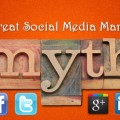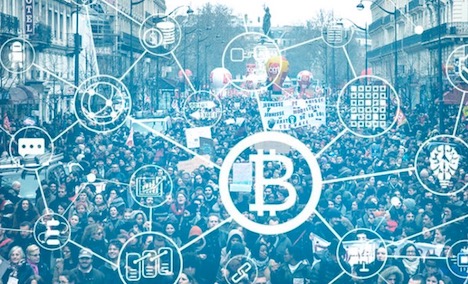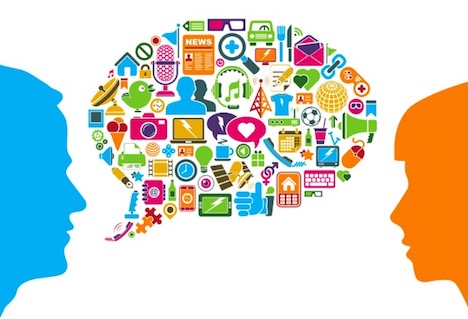Myth or Fact: How Blockchain is Impacting Social Media
Something is going wrong in the world of social media. Such companies as Facebook and YouTube are leaders in this sphere, and it’s impossible not to notice new scandals and questions that shake these companies from the inside.
Social media is a perfect business model. These companies earn millions of dollars by selling ads, and they collect all the possible information about users, which makes this business so successful. Using complicated algorithms, social networks monetize content by selling ads based on users’ interests. Of course, Facebook keeps claiming that they put the privacy of their users first, but the scandal around Facebook and Cambridge Analytica proves the opposite. Personal data of over 87 million users leaked and was used for showing manipulative and biased advertisements. YouTube’s headquarters was recently attacked by a shooter. Given the important role of such websites in everyone’s life, more and more people are trying to figure out what the future of social media looks like, and how to protect information effectively.
For many experts and enthusiasts, the answer is obvious: a blockchain technology gains popularity and constantly gets improved in terms of usability. It’s no longer just a cryptocurrency technology. New social media, such as SteemIt and Indorse, are adapting blockchain to their needs, developing new standards of the internet safety. Traditional social media have a few content creators and millions of consumers, which is certainly not the best environment for the development of qualitative content. Blockchain networks reward their content creators with no need for advertising. Active participants get their reward in cryptocurrency, and users are able to decide what kind of content they want to see.
What is Blockchain?
Almost everyone has heard of Blockchain when talking about Bitcoin. Indeed, this technology made cryptocurrencies possible, but the range of its applications had quickly expanded. A blockchain is a decentralized database divided among many separate users. A collection of records is maintained and monitored by thousands of peers instead of being stored on a single server. Obviously, massive databases are hard to manage for users, that’s where the internet and computers become so important.
The very name of blockchain suggests the dual nature of this technology. Every block of information contains transactional records, and a hash function (“chain”) assembles these records. A network of computers puts every block together with the preceding block, generating a sequence and creating a final chain of records for the transaction.
Given the fact that this technology relies on a wide network of separate computers, it makes impossible for one person to trace the whole history of operations. This feature of Blockchain makes it even more secure than a traditional federal database, because the system of data protection is what this technology is built on. Traditional databases are dependent on certain authorities and relationships of trust. These authorities must obey the terms of contracts, which makes the security of the entire system dependent on promises. Blockchain automatically ensures that peers keep their promises. After the success of Bitcoin and other cryptocurrencies, it became clear that blockchain can be used for holding information of any kind. For example, Follow My Vote organization has already started using it in an automatic voting system that raises the security of the voting process to a new level.
Blockchain and Social Media
Social media was one of the key reasons why cryptocurrency became mainstream. In 2010, Laszlo Hanyecz used a forum to buy two pizzas for 10,000 Bitcoins. It was the first cryptocurrency transaction between the members of a social network, and the beginning of a bigger story. Today, both business owners and social media marketers need to understand that the world of social media is going to change dramatically.
Blockchain explores different industries, and social media is one of the first spheres that is going to be changed by this technology. First of all, blockchain-based social networks will be unable to store private information about their users. Thus, users will no longer be products sold to advertisers. This technology also ensures better control over the user-generated content, because a decentralized approach makes it impossible for anyone to control the content without a central server. It ensures the complete privacy by encrypting all uploads and users’ data, making it impossible for corporations to spy on users. This technology also opens a range of opportunities for peer-to-peer commerce using cryptocurrencies. Participants can use one platform for both communication and trading tokens or coins. Encrypted smart contracts make such networks trusted, offering countless advantages for all kinds of business and crowdfunding.
Trends: Impact of Blockchain on Social Media
Cryptocurrencies and the blockchain technology have already changed the way people trade and communicate online. Even though the impact of blockchain on social networks may seem weak now, some features of this technology can disrupt the world of social networks as we know it.
1. Verification of Online Identities
Social networks now face the need for verifying identities online. Millions of bots on Facebook, Twitter, and Instagram have already proven how fake identities affect the public opinion. As a result, the marketing industry felt the negative consequences for ROI. The blockchain technology allows businesses to work with customers whose identities went through a decentralized verification system. Along with smart contracts, this allows business owners to eliminate useless social media campaigns based on fake impressions and PPC.
2. Changing the Way People Get Information
Blockchain has changed the way we think about data. This technology separates data from platforms. Platforms of the new type use decentralized data to benefit both users and marketers.
Blockchain is used by many digital marketing companies, such as the Display Network. Encrypted communication and transactions make online marketing more trustful and transparent, maintaining and enhancing the interest in blockchain.
3. Verified Marketplaces
As well as the idea of verified identities, verified marketplaces are the concept that changes social media and the marketing industry. Verification of marketplaces using blockchain has a great potential to become mainstream, addressing specific needs of the target audience.
4. Fighting Fake News
Blockchain and smart contracts are technologies able to prevent the spreading of fake information. Modern social networks are full of spam bots and fake news. Even though the fake information is traceable, the business model of social media as we know it has proven to be ineffective in terms of validation of the paid content. Technologies of blockchain verification lead to the dominance of verified information, which will change all traditional platforms, such as Facebook or Twitter.
5. Building a New Future for Social Platforms
The use of blockchain and cryptocurrencies forms a strong basis for the evolution of social platforms. The decentralized approach will give users more freedom to choose which platform to use.
Blockchain-based social networks also include a built-in mechanism for making cryptocurrency transactions, which allows platforms to reward those who create content and actively participate in the distribution of verified online content.
Conclusion
Blockchain is a technology that is able to change social media and online marketing for the better. The most important problem for modern social media and marketers is the lack of trust and transparency. Blockchain solves this problem and makes social media a safer place at the same time. It allows influencers to get paid wherever they are, regardless of the currency they use. It also allows brands to share their content with the audience that is interested in their products because users choose what content they want to see. Brands and influencers can work on marketing campaigns together, creating relevant content and getting real information on the users’ feedback, eliminating the element of PPCs and fake impressions.
Blockchain-based social networks allow consumers to get verified and clear content, while influencers get an improved, secure system for receiving payments. Therefore, blockchain introduces a new age of social networking which will be appreciated by everyone.
Author: Berta Melder
Berta Melder is a brand manager and co-founder of the Masterra Writers. She graduated from University of South Carolina with a degree in Public Relations. Berta cooperates with different universities as a guest lecturer, enjoys creative writing and blogging.
You May Also Like:
 Promising Social Media Trends for Emerging Users Online
Promising Social Media Trends for Emerging Users Online
 Social Media Myths and Truths Every Digital Marketer Should Know
Social Media Myths and Truths Every Digital Marketer Should Know
 40 Best Social Media Search Engines to Find People & Profiles
40 Best Social Media Search Engines to Find People & Profiles
 15 Types of Social Media Fans and Followers
15 Types of Social Media Fans and Followers
 20 Most Shocking Social Media Facts and Secrets
20 Most Shocking Social Media Facts and Secrets
 10 Social Media Hacks to Improve User Engagement
10 Social Media Hacks to Improve User Engagement
 Top 15 Location-based Social Media Monitoring Tools
Top 15 Location-based Social Media Monitoring Tools
 The Birth of Black Hat Social Media and Why We Should Discard Them
The Birth of Black Hat Social Media and Why We Should Discard Them
Tags: blockchain, it knowledge, social media, technology
Comments are closed.





































